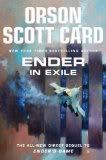
Skeleton Creek
by Patrick Carman
Something is wrong in Skeleton Creek, and teens Ryan and Sarah are determined to figure out the mystery. They've lived in Skeleton Creek all their lives, but an innocent question from Sarah - why is the town called Skeleton Creek - leads them to uncover clues that something is not right. Everything seems to be tied into the dredge, an old, abandoned machine in the woods that was used for mining gold, but when Ryan and Sarah go to the dredge to investigate, a terrible accident happens. Laid up with an injury, Ryan continues the investigation from home, using the Internet and other resources, while Sarah takes her video camera out to try to gather more information. But it seems like everyone in Skeleton Creek is trying to hide something, and the two teens have been forbidden to communicate with each other. Will Sarah and Ryan be able to uncover the truth before something terrible happens?
Skeleton Creek is a story told in alternating text and video, to make the book more interesting to reluctant readers in our media saturated world. It's an interesting idea, and I think it's done well: the text and video are very well integrated and go hand in hand to create a compelling story. Ryan is an obsessive writer, and the text of the book comprises his journals, as he documents everything. Sarah is equally obsessed with her video camera, and at various intervals in the text, a password is provided to view another of Sarah's videos on the web site. There is also an alternate reality game at www.skeletoncreekisreal.com, which is built around the idea of trying to uncover evidence that the story of Skeleton Creek is real.
The text is written in a fairly simple style, but I think that was done intentionally to make it easier for reluctant readers. I'm not the intended audience for the book, and I honestly didn't expect to enjoy the book for its own sake. I read it with the intent of evaluating whether it would appeal to its intended audience. And as I expected, for the first part of the book, I didn't find the story very compelling. However, after the first video, I started finding myself pulled into the story more and more. I got so wrapped up in it that I almost screamed after watching the last video, and immediately went online to try to find someone else who had read it to talk about it with me. The book ends on quite a cliffhanger.
I don't think that the text of the book would stand alone very well, however, I don't think it was intended to. The words and the videos are designed to work together, and they do that. I'm not a writer, but I think it's probably difficult to write books that are simple enough for kids who have trouble reading, yet compelling enough to hold the attention of a tween or teen reluctant reader. Skeleton Creek addresses that problem by using the videos to hook the reader, and the fairly simple text to tie it all together.
The book is typeset using a font that looks like it's printed by hand, to enhance the illusion that the book is Ryan's journal. It's not a fancy or cursive font; the letters are printed in a fairly simple block style and the words are set in all upper case. I don't know if it would be difficult for struggling readers to read or not.
I was a bit confused when I finished the book; not only does it end on a cliffhanger, but there were many threads not wrapped up. My advance reading copy didn't say it was part of a series, but I've since been told that there is a sequel coming out later this year, which cleared up my confusion.
One thing that I found frustrating was that I'm often not at the computer when I read, and I kept having to stop reading every time I got to one of the video pages, until I could get back to my computer. I don't know if this would be a problem for the intended audience or not, because I don't know how much they have their computers handy while reading. I couldn't help wondering if there would have been a way to tie this into the ubiquitous mobile phones. Could it have been set up to text the password to a certain number to get the next video delivered to your mobile phone? I don't know enough about mobile technology to know if this is possible, but if so, I think it would be a great way to do a project like this in the future.

